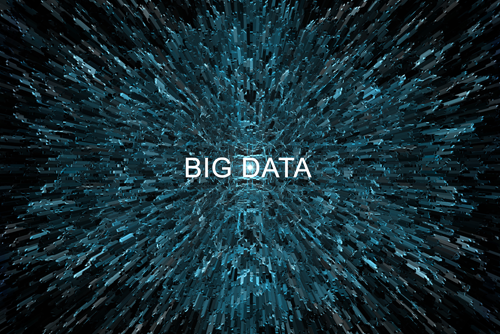How Does Big Data Help Companies?
2 July 2021
There are hundreds (maybe even thousands) of articles out there singing the praises of Big Data and predicting how it’ll change our world beyond all recognition. But, for the average business, the practical, everyday uses of Big Data can seem out of reach. In this article, I set out five very real, very practical ways Big Data can help any business.

Broadly speaking, Big Data can help your company in five key ways:
- Making better business decisions
- Understanding your customers
- Delivering smarter services or products
- Improving business operations
- Generating an income
Let’s look at each usage in turn, and explore some real-life examples of how Big Data has added value for organisations.
Making better business decisions
Big Data gives businesses the tools they need to make smarter decisions – decisions that are based on data, not assumptions or gut feeling. But for this to happen, everyone in the company must have access to the data they need to improve decision making. This means data should no longer be the sole domain of IT departments and business analysists; instead, business users across the company should be able to explore and interrogate data so that they can answer their most pressing business questions. This company-wide access to data is often referred to as data democratisation.
Retail giant Walmart provides a great example of this democratisation of data in action. Crucially, though, Walmart provides its people with access to data in a controlled way – thereby ensuring that non-techy types don’t get overwhelmed by data and can easily find the answers they need.
How does this work in practise? Walmart’s Data Café is a cutting-edge analytics hub, where hundreds of streams of internal and external data can be sliced and diced to deliver insights. Teams across the business are invited to bring their business problems or questions to the Data Café’s analytics experts, and find a data-based answer. For example, one grocery team couldn’t understand why sales in one product category had suddenly dropped, so they turned to the Café for answers. By drilling into the data, they quickly identified that a simple pricing miscalculation had led to products in that category being listed at a higher price than normal in some stores.
Understanding your customers
Ponder for a moment how much Facebook knows about your life, and how it uses that knowledge to give you relevant recommendations. This perfectly demonstrates a key advantage of Big Data: namely, the more you understand about your customers, the better you can serve them.
Disney is leveraging Big Data technology to understand visitor behaviour at its theme parks, so that it can offer an even more magical experience for resort guests. This is all possible thanks to the introduction of the MagicBand. These guest wristbands act as ID, entry passes, room keys, and even payment devices, so all guests have to do is swipe the band at sensors to pay for something or gain entry to a ride or their hotel room. Meanwhile, Disney clocks up a wealth of data on individual guest behaviour – data that it uses to run a more efficient resort (for example, by spotting logjams more easily) and provide a more thoughtful, personalised experience for guests (such as Disney characters greeting your kids by name).
Delivering smarter services or products
When you know more about your customers, you can design smarter products or services to suit their needs. That’s part of what Disney is doing with its MagicBand initiative.
Royal Bank of Scotland (RBS) is also using Big Data to deliver a better service to its customers. The average bank knows a lot about its customers, from what they like to buy, to where they go on holiday. RBS is beginning to harness the potential of this knowledge to better meet customers’ needs.
What I like about RBS’s approach to Big Data is that it’s not designed to squeeze more money out of customers by flogging additional financial products. Rather, it’s about giving customers a better service – and saving them time and money. For example, transactional data is analysed to spot where customers might be paying twice for a financial product, like paying for travel insurance that’s already included with a bank account service. Branch and call centre staff can then make personalised, real-time recommendations that will help customers.
While this may not be about boosting revenue directly, RBS’s initiatives do promote customer satisfaction and loyalty – and this, in turn, makes for a healthier bottom line.
Improving business operations
Robotics and automation may be old hat in industrial settings, like factory production lines. But, increasingly, plenty of other business sectors and functions are becoming more automated and efficient. This rise in automation is underpinned by Big Data.
Let’s take a quintessentially human business function as an example: HR. Big Data and automation has the potential to completely transform – or at the very least, augment – a wide range of people-related processes, from recruitment to learning and development. For example, chat bots are already being used to answer common employee questions, and AI-driven training courses are able to spot when a trainee is having trouble grasping a particular lesson.
That’s why HR software company PeopleDoc has launched a Robotic Process Automation platform, that runs alongside existing company systems and ‘listens’ for processes or events that could be automated. That way, tedious, repetitive tasks can be done by machines or algorithms. Much has been written about the threat that automation poses to jobs, but I prefer to take a more positive approach. Automating mundane but time-consuming tasks frees up skilled workers for more creative, strategic work that adds greater value to the business.
Generating an income
Big Data isn’t just about improving processes and decisions, or understanding more about customers; data can be monetised to boost revenue or create an additional income stream.
American Express, which handles more than 25 percent of credit card transactions in the US, interacts with parties on both sides of a transaction: businesses and their customers. Now, Amex is leveraging the data generated by these transactions to bring businesses and customers closer together.
For example, its merchant services now include online trend analysis and benchmarking tools to help businesses analyse how they’re doing compared to their competitors and spot trends within their market. How does this help Amex’s bottom line? For one thing, it provides an incentive for more businesses to accept Amex, which means more transactions … and more revenue.
It’s also worth noting that Big Data can save companies money. Lots of money. In fact, data-driven fraud-detection technology, which is used by Amex and other credit card providers to identify and prevent fraudulent transactions, has saved billions of dollars.
As well as helping businesses in these five ways, Big Data is also fuelling the artificial intelligence (AI) revolution. In other words, the proliferation of data means that machines and algorithms have more data to learn from. This presents even more exciting opportunities for businesses to automate processes, make smarter decisions, delight their customers, and more.
Where to go from here
If you would like to know more about Big Data and AI, cheque out my articles on:
Related Articles
The Top 5 Technology Trends For 2026
By now, “smart” versions exist of just about every home appliance, gadget and gizmos we can think of. However, manufacturers continue[...]
The 7 Biggest Cyber Security Trends Of 2026 That Everyone Must Be Ready For
By now, “smart” versions exist of just about every home appliance, gadget and gizmos we can think of. However, manufacturers continue[...]
7 Terrifying AI Risks That Could Change The World
By now, “smart” versions exist of just about every home appliance, gadget and gizmos we can think of. However, manufacturers continue[...]
Why You Should All Be Worried About Q-Day And The Collapse Of Digital Security
By now, “smart” versions exist of just about every home appliance, gadget and gizmos we can think of. However, manufacturers continue[...]
Quantum Computing Faces 3 Major Barriers Before Going Mainstream
By now, “smart” versions exist of just about every home appliance, gadget and gizmos we can think of. However, manufacturers continue[...]
The Incredible Tech That Stole The Show At Goodwood’s Future Lab
By now, “smart” versions exist of just about every home appliance, gadget and gizmos we can think of. However, manufacturers continue[...]
Sign up to Stay in Touch!
Bernard Marr is a world-renowned futurist, influencer and thought leader in the fields of business and technology, with a passion for using technology for the good of humanity.
He is a best-selling author of over 20 books, writes a regular column for Forbes and advises and coaches many of the world’s best-known organisations.
He has a combined following of 4 million people across his social media channels and newsletters and was ranked by LinkedIn as one of the top 5 business influencers in the world.
Bernard’s latest book is ‘Generative AI in Practice’.










Social Media